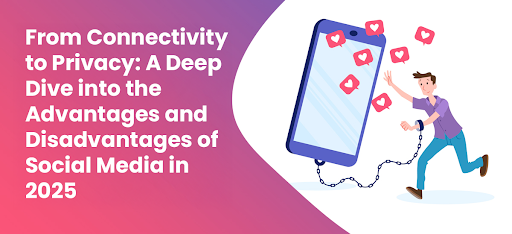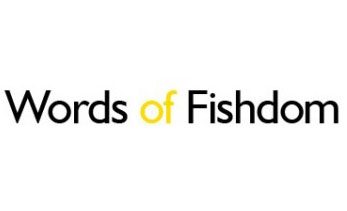From Connectivity to Privacy: A Deep Dive into the Advantages and Disadvantages of Social Media in 2025

Social media is the weave of daily life; therefore, it is making changes in the way people communicate, how businesses grow, and the way information diffuses through the globe. The world has changed communication, and this world is a little too accessible than at any other time before. This is because the social networking sites enable the brand to reach their audience, hence helping people expand their professional network and receive all the latest news in real-time, so that their influence cannot be ignored.
However, digital advance comes with speed and its implied cost. Now, where help social media offer in building of brands and diffusing information come questions on usage data, one’s personal life, and possible security breaches- and connectivity via privacy has never been so thin.
The Bittersweet Nature of Social Media
Imagine a huge digital marketplace where billions of people come to exchange ideas, talents, and business promotion. Now imagine the same space full of security risks, misinformation, and addictive content.
Social media is an opportunity and a challenge as well. While used effectively, it increases bonds and knowledge strengths. If it is misused, then all personal data might be compromised with mental health along with real life interactions.
Benefits of Social Media in 2025
1. Real Time and World Wide Connectivity
Social media has broken the distance barrier. People can reach out from anywhere in the world. Whether through messaging applications, live video, or online communities, platforms have created spaces for real-time interaction.
For example, LinkedIn lets professional workers who are based in different time zones work with each other. In the second case, WhatsApp and Facebook keep families connected from virtually anywhere.
Why it matters: In this fast-forward era, in a fast society, social media ensures personal relations and business collaborations are kept intact too.
2. A Launchpad for Brand Building
A small startup to a global giant, business grows on social media. It lets one reach out to the targeted audience at the cheapest possible cost and build credibleness among customers.
A mini fashion boutique can very well market and expand business on Instagram, even not having a walk-in storefront, through backstage accounts, influencer partners, or customer reviews.
Why it matters : Social media is a direct connection between a business and their customers, meaning it is, therefore, the most engaging and intimate marketing strategy.
3. Information Overload at Unparalleled Speed
The nature of updates on social media is real-time, and nothing could be compared with that kind of news broadcasting. From international events to product launches, the consumer gets to see everything in real time, and it makes these platforms invaluable for breaking news.
But that also means the spread of misinformation is as swift. Critical thinking is the only way to distinguish fact from fiction.
Why it matters: Social media educates the world and source verification would prevent some false narratives.
4. Data-driven advertising which pursues niche targeting
Business does not need to engage in mass marketing any longer. Facebook and Google Ads employ consumer data and sell things on the basis of consumer’s interest, geography and their online behaviour in association with.
A fitness brand can target its ads campaigns to people who are viewing workout-related content, hence making the ads work and actually seen by a potential customer and not just a random viewer.
Why it matters: Personalized marketing drives engagement while trimming wasted ad spend.
5. Career Growth and Networking Opportunities
Social media has changed how professionals advance their careers -whether seeking employment or career advancement. With LinkedIn, the job seeker would be connected to the recruiter; however, on Twitter, insight sharing would originate from industry leaders to new talent.
A freelance graphic designer could post his work in Instagram, later gathering clients from all over the world; social media becomes an alternative portfolio.
Why it matters: This media provides opportunities for networking, professional advancement, and self-improvement.
6. A Tool for Social Movements and Advocacy
Activism through social media is, of course, certainly amplified by the use of hashtags and viral campaigns. Whether it’s climate action, equality, or mental health awareness, it’s the voice of the marginalized communities and millions of others that social media outlets amplify so they are not ignored.
For instance, social media exaggerated the data privacy issues to make a point to businesses that better security has to be sustained.
Why it matters: Digital tools can be change agents if used appropriately.
7. Entertainment and Creative Expression
All of them, the creative elements it inspires have their expression. From such outlets as TikTok and YouTube, one could boast talent while presenting themselves in connection with people of interest even growing into some professional content.
Original tracks for composing a new original can get some listeners just via YouTube
Why it matters: There is an area where one allows creativity from democratic levels allowing industry-related, zero relationships individual spaces.
Dangers of Social Media in 2025
1. The risk of Personal Information
Most social media sites collect a significant amount of information regarding its user without the personal knowledge or understanding of the latter. The access to data with the usage for advertisements targeting becomes a plus factor for third parties, etc.
This breach would leak personal data. It could be taken up to a level of stealing identity or unauthorized access into an account.
Means to reduce the risk:
Make use of privacy settings and refrain from over-sharing but be highly vigilant with third-party applications.
2. Social Media Addiction and Impact on Mental Health
Unstoppable scrolling, likes, and notifications create a habit of addiction that results in anxiety, low self-esteem, and poor concentration. According to research studies, excessive screen time is linked to low productivity and emotional well-being.
For instance, a teenager may want a flawless online life, which leads to stress and unhealthy comparisons.
How to strike a balance: Limit the screen time and involve oneself in other activities.
3. The Speed of Misinformation
The rate at which false information spreads changes public opinions before knowing them. Misleading health tips, political debates, and much more can lead to severe effects.
For example, there are fraudulent schemes on online investment that trick the users to engage in fraudulent activity based on false information.
Crosscheck the information: Crosscheck on the news website before posting for sharing something instead of posting any unidentified claims
4. Cyber threats and data breach
Hackers break into the social media account through phishing fraud, leakage of password, and fake gift card scam. At least sometime, one will lose money or reputation. In 2025, a data breach occurred when millions of accounts with higher security concerns toward related sites on social media.
Be safe by:
- Having strong passwords
- Activating two-factor authentication
- Not clicking on suspicious links.
5. Reduced Face-to-Face Interaction
The bottom line is that social media makes digital communication better sometimes, but it weakens real world relationships. Too much exposure online just makes a person lose in-person social skills.
As an example, chatting through DMs instead of verbal conversations affects emotional intelligence.
How to maintain balance: Prioritize real-world interactions over virtual ones
Final Thoughts: Balance in 2025
This is indeed a double-edged sword- social media provides brand building, connectivity, knowledge sharing, etc, but it risks information privacy, misinformation, and mental health.
As social media continues to grow, the only question is whether we are in control or whether it will end up controlling us. This is something we need to see how wisely we use it in the digital age.
